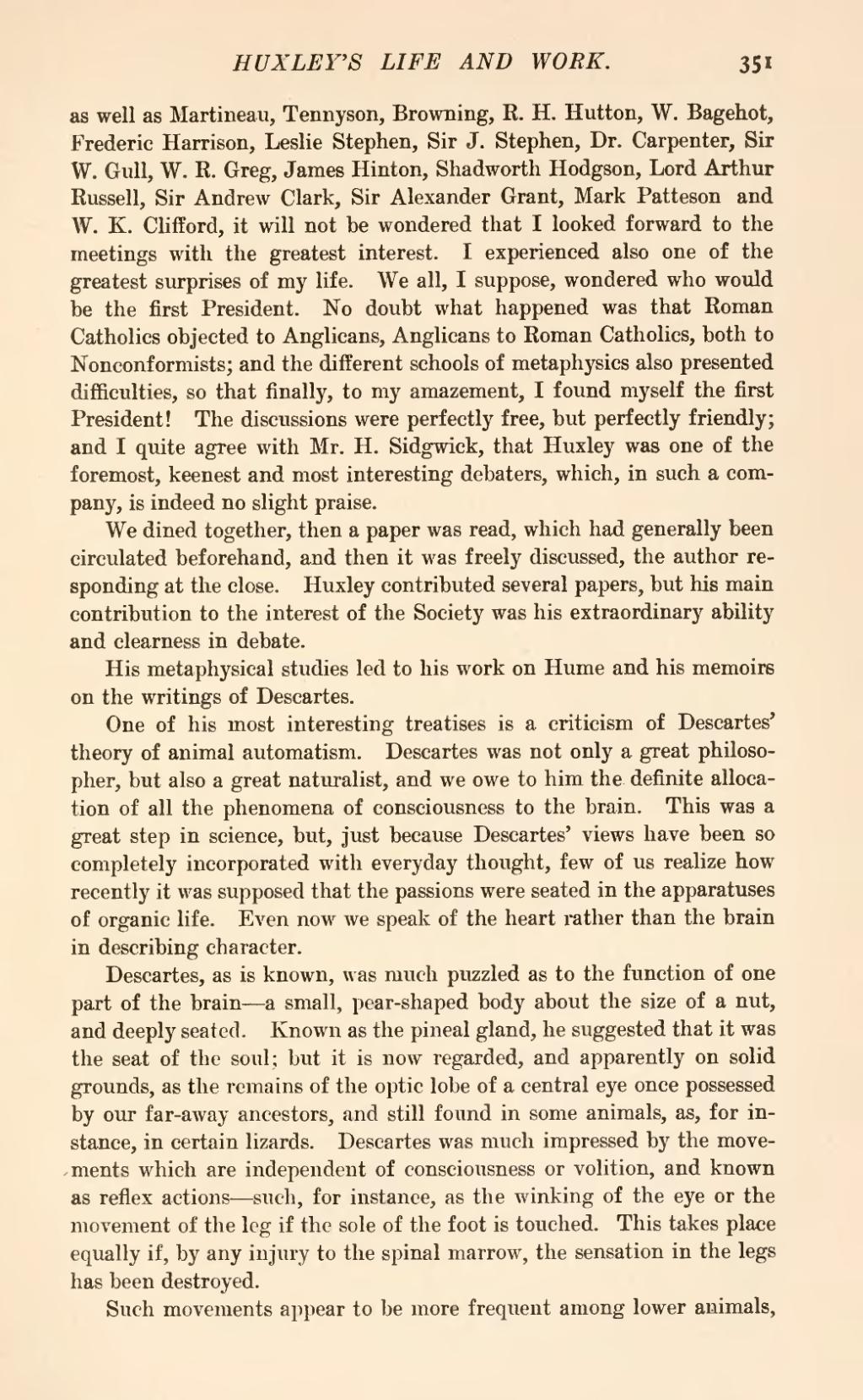as well as Martineau, Tennyson, Browning, K. H. Hutton, W. Bagehot, Frederic Harrison, Leslie Stephen, Sir J. Stephen, Dr. Carpenter, Sir W. Gull, W. R. Greg, James Hinton, Shadworth Hodgson, Lord Arthur Russell, Sir Andrew Clark, Sir Alexander Grant, Mark Patteson and W. K. Clifford, it will not be wondered that I looked forward to the meetings with the greatest interest. I experienced also one of the greatest surprises of my life. We all, I suppose, wondered who would be the first President. No doubt what happened was that Roman Catholics objected to Anglicans, Anglicans to Roman Catholics, both to Nonconformists; and the different schools of metaphysics also presented difficulties, so that finally, to my amazement, I found myself the first President! The discussions were perfectly free, but perfectly friendly; and I quite agree with Mr. H. Sidgwick, that Huxley was one of the foremost, keenest and most interesting debaters, which, in such a company, is indeed no slight praise.
We dined together, then a paper was read, which had generally been circulated beforehand, and then it was freely discussed, the author responding at the close. Huxley contributed several papers, but his main contribution to the interest of the Society was his extraordinary ability and clearness in debate.
His metaphysical studies led to his work on Hume and his memoirs on the writings of Descartes.
One of his most interesting treatises is a criticism of Descartes' theory of animal automatism. Descartes was not only a great philosopher, but also a great naturalist, and we owe to him the definite allocation of all the phenomena of consciousness to the brain. This was a great step in science, but, just because Descartes' views have been so completely incorporated with everyday thought, few of us realize how recently it was supposed that the passions were seated in the apparatuses of organic life. Even now we speak of the heart rather than the brain in describing character.
Descartes, as is known, was much puzzled as to the function of one part of the brain—a small, pear-shaped body about the size of a nut, and deeply seated. Known as the pineal gland, he suggested that it was the seat of the soul; but it is now regarded, and apparently on solid grounds, as the remains of the optic lobe of a central eye once possessed by our far-away ancestors, and still found in some animals, as, for instance, in certain lizards. Descartes was much impressed by the movements which are independent of consciousness or volition, and known as reflex actions—such, for instance, as the winking of the eye or the movement of the leg if the sole of the foot is touched. This takes place equally if, by any injury to the spinal marrow, the sensation in the legs has been destroyed.
Such movements appear to be more frequent among lower animals,
